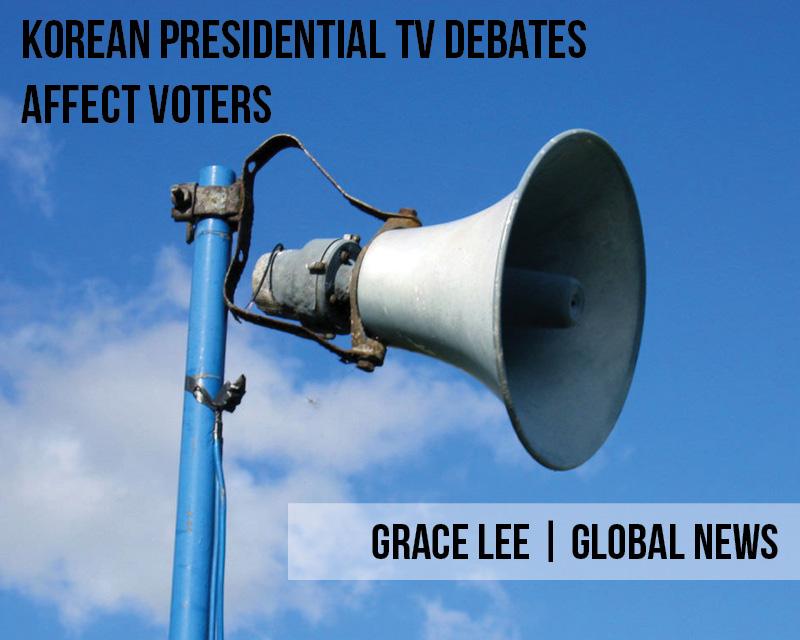Months, sometimes years, leading up to presidential elections in democracies are filled with changing political ties and ambitious policies of each candidate. They are crucial times for candidates to appeal to voters that will ultimately determine the final result on election day. Unlike other elections that usually have long preludes, the Korean presidential election on May 9 will only give the candidates two months to let their platforms and visions be known to the public. May 9 will mark exactly two months from Mar. 9 when the South Korean court removed the former President Park Geun-hye. The shorter time frame before the election day makes the televised debates evermore important for voters and candidates alike.
“I believe that this particular election is very important because right now, the citizens’ trust for the government is at its lowest after the impeachment of President Park,” said Leonard Lee (9), MUN club member. “The new president will have a great burden and responsibility to regain the support of the citizens, and he or she would have to clean up the ‘mess’ and social chaos left by the previous candidate.”
On Apr. 13, the first of five planned presidential debates was organized by the SBS broadcasting studio. Candidates from five major political parties, Moon Jae-in of the Democratic Party, Ahn Cheol-soo of the People’s Party, Hong Joon-pyo of the former ruling Liberty Korea Party, Yoo Seong-min of the Bareun Party, and Sim Sang-jeung of the progressive Justice Party, participated in the debate. The attention was particularly focused on Moon and Ahn, the two leading candidates in the election currently with Ahn closely catching up on Moon. However, after the first debate, the poll widened between the two candidates as support rate for Moon rose 0.6 percent while that for Ahn dropped 5.8 percent, according to the poll by Chosun Ilbo.
“We have a particularly restless citizenry at this point because of the Park scandal, who are looking for change,” said Wonjai Lee (11), Deputy Secretary General of 2017 Seoul Model United Nations. “Many predict a more liberal shift in upcoming Korean politics, and they’re right; just to illustrate the fact, both the major candidates are proposing raising taxes and putting them into social programs, which is interesting for a historically conservative South Korea.”
According to the Korea Times, in the 2012 presidential election, nearly 10 percent of voters decided on a particular candidate after watching the TV debates. For the second debate on Apr. 19 hosted by KBS, the candidates and the broadcaster agreed on a stand-up debate with no prepared notes and only 20 empty A4 sheets for notetaking. Although the intention was to create a more open forum for candidates to freely debate about their policies, the debate turned out more to be a 1 versus 4 political hearing with the majority of questions direcred at Moon, the leading candidate. Due to the shorter campaign period than usual, TV debates scheduled for Apr. 21, 23, 28 and May 2 are predicted have even greater impact on voters.
“The TV debates really are not focused on the policies of the candidates,” Leonard said. “They focus more on attacking the candidates about the previous statements, and I remember watching a candidate being criticized for what he said about women’s gender roles, instead of being criticized for his policies during a time for policy debate. The purpose of the debates should be for the citizens to be more aware of the candidates’ policies, but its purpose has become distorted.”

